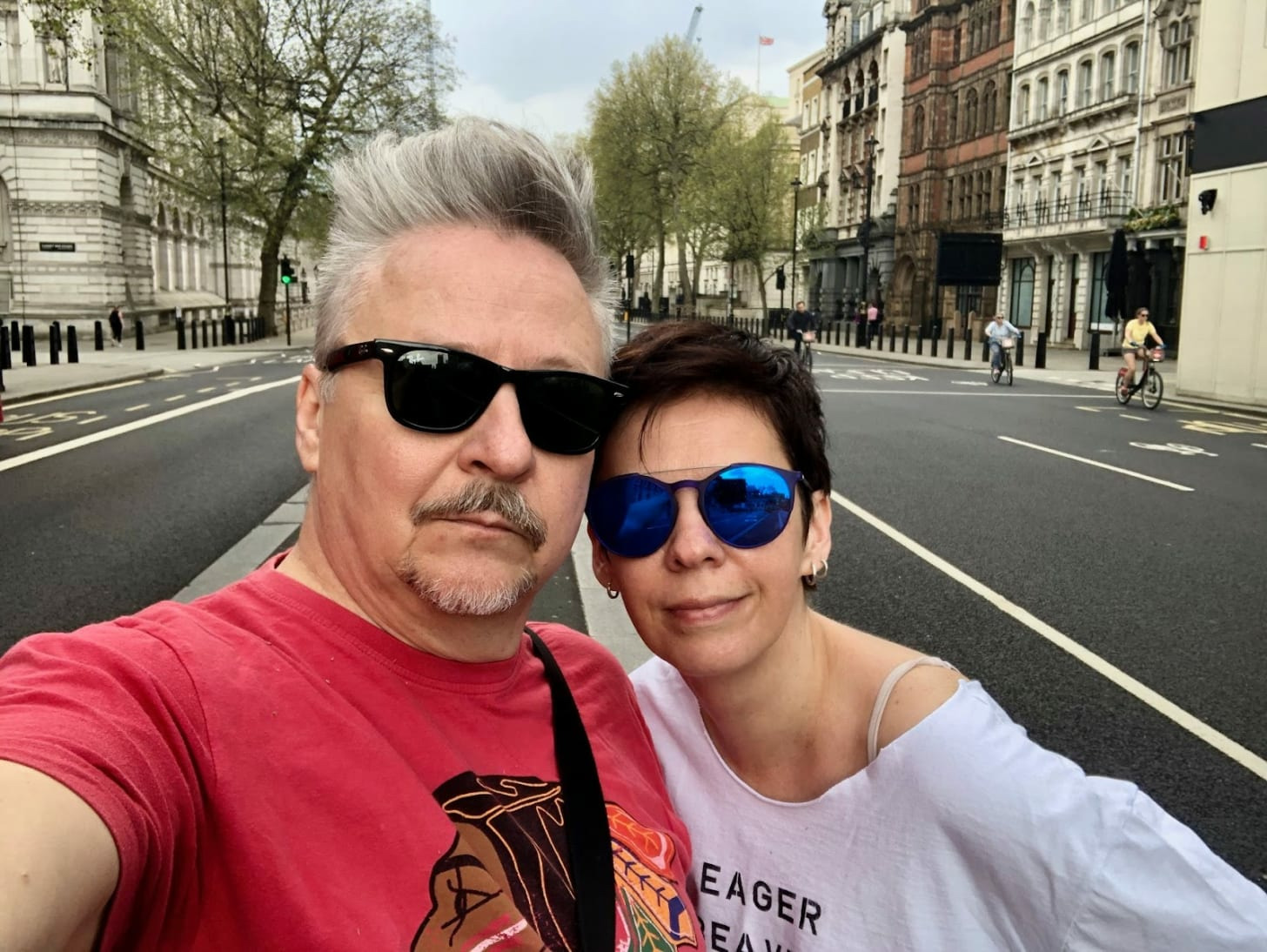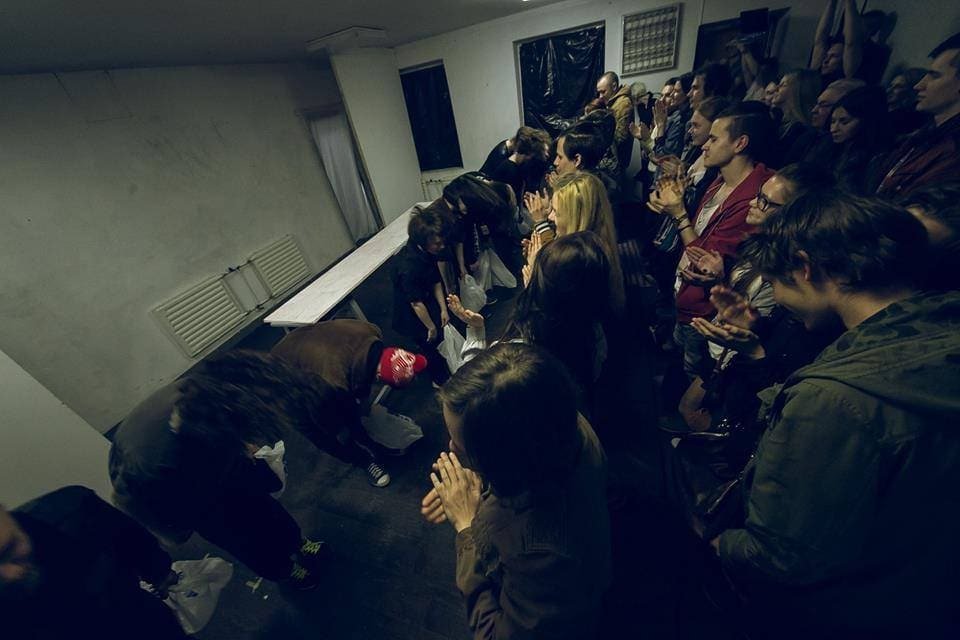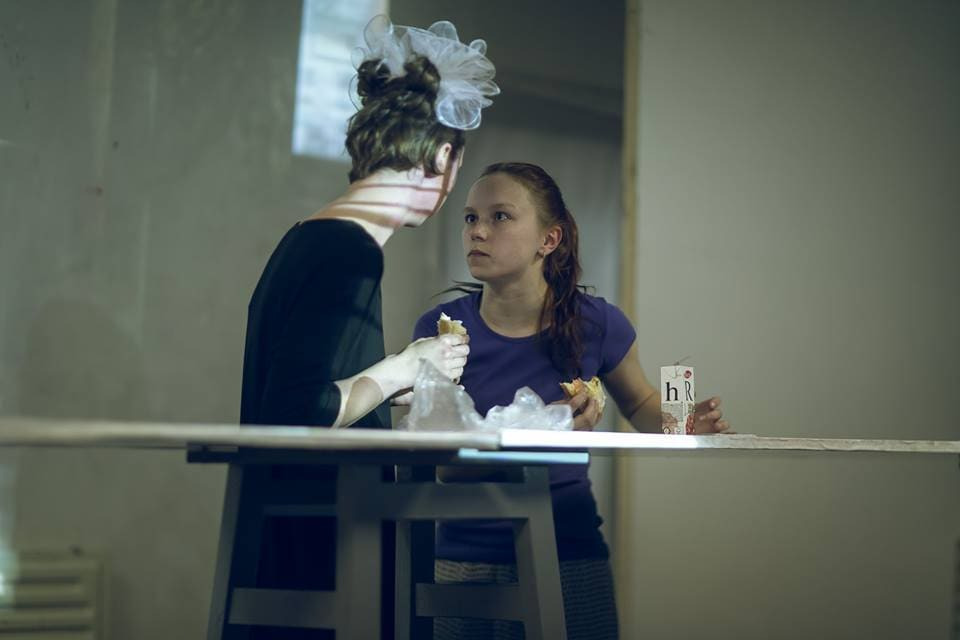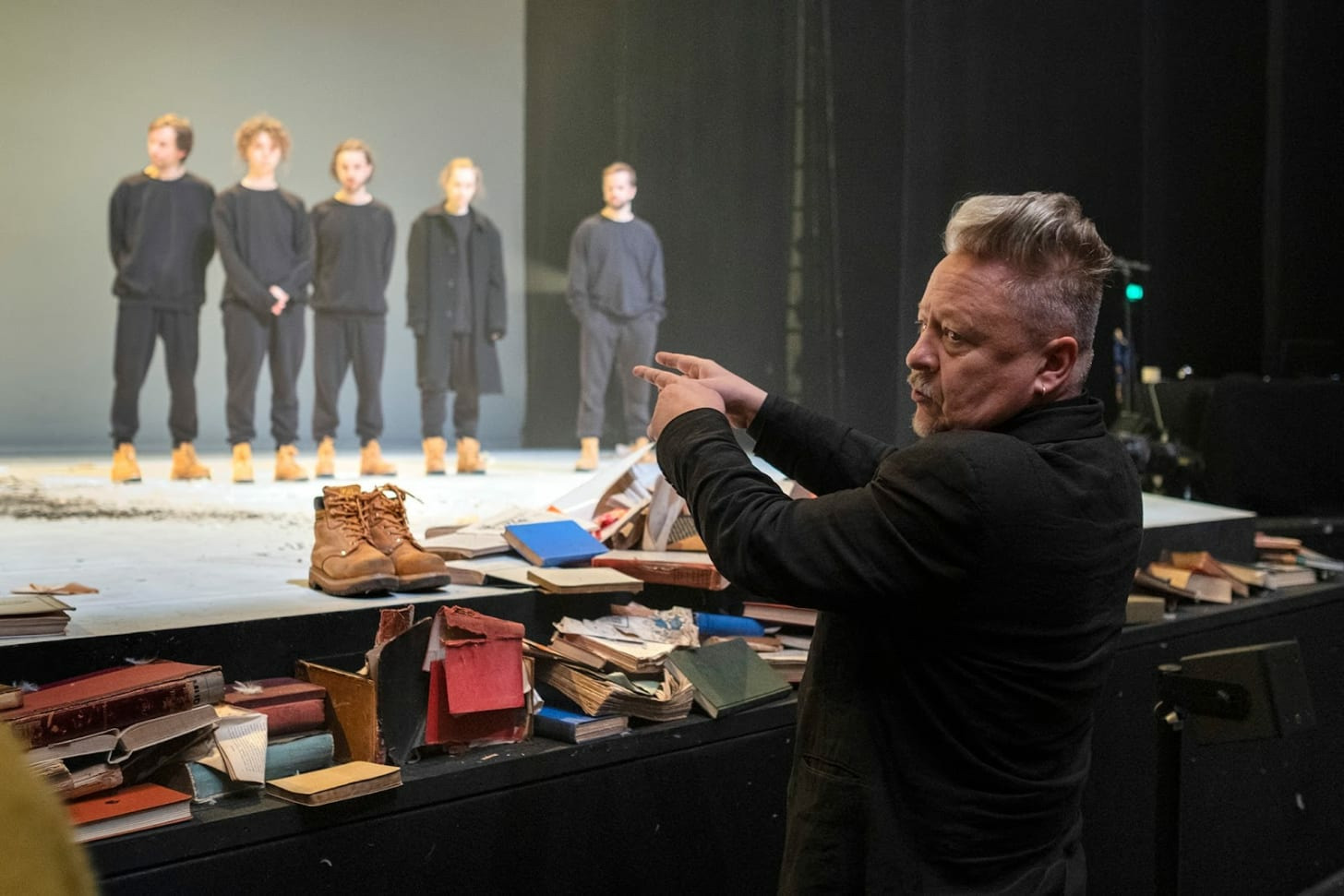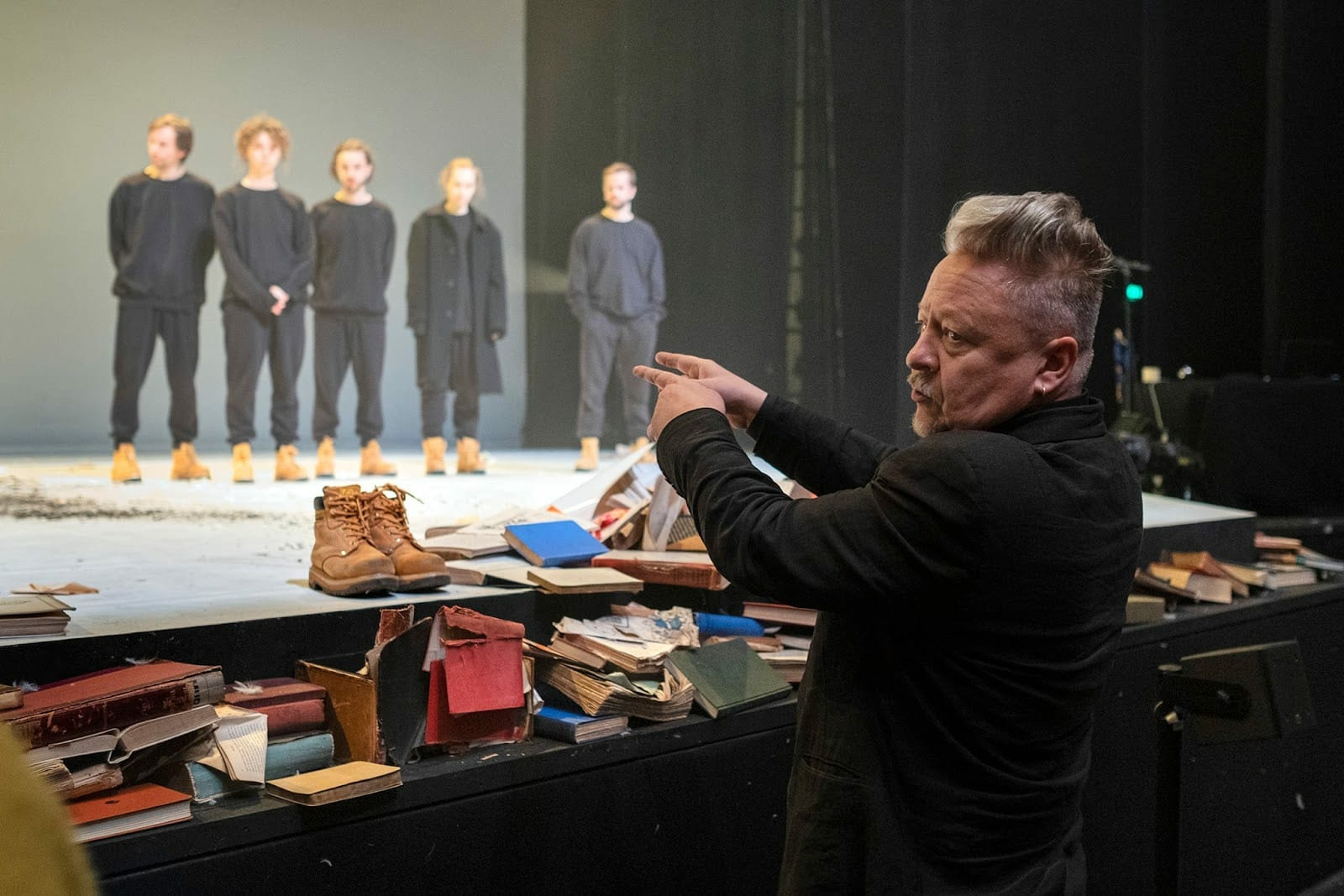
Editor’s Note: We believe that stories can stand up to dictatorship — whether it's an artistic reimagining of resistance on a theater stage, or writing deeply-empathetic profiles of people targeted by criminal regimes.
This month, all our Ukraine stories will be paywalled. Get full access now by upgrading!
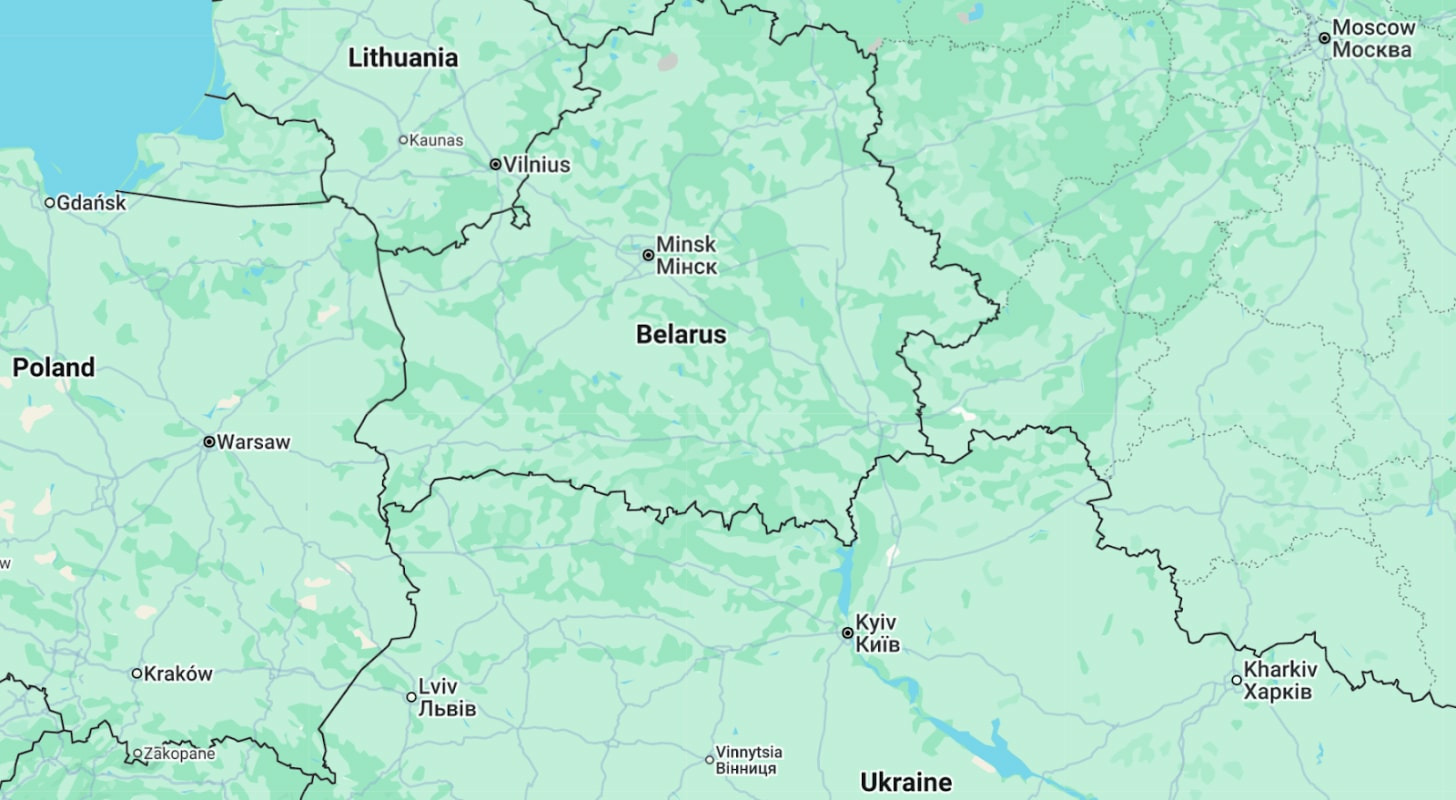
It was 8 p.m. in Minsk when several dozen people gathered outside a supermarket.
They weren’t there for groceries, but instead for a clandestine meetup… for a play.
None of them knew where they were going – it turned out to be a nearby garage complex, where a theatre group was having a secret show, a running act that had become a symbol of Belarus’ underground resistance.
Everyone who opposed the government in Belarus had heard of them.
Just hours earlier, the show had been announced on social media. To attend, people had to call a number to reserve a spot. The performance’s exact location — constantly changing to avoid detection — was revealed only once they arrived at the rendezvous point.
The Belarusian secret service, still known as the KGB, could raid at any moment, arresting both actors and spectators.
Founded in 2005, the Belarus Free Theatre had already earned a reputation for vivid, politically charged productions that defied Aleksandr Lukashenko’s repressive regime.
But can art really be a force for change when the other side carries batons and bullets? Regimes have long targeted theatre, music, and literature in their drive to control minds—and art poses a threat to that ideal. Stalin purged Soviet writers; the Taliban bans music.
So it’s no surprise that Lukashenko now suppresses theatre: a single play can give audiences a shared language of dissent, put them face-to-face with their reality, and help them imagine a different future.
That is why Belarus Free Theatre faces harassment: art keeps the possibility of freedom alive even when politics fails.
Belarus Free Theatre is the only theatre in Europe that has been banned by their government from performing for political reasons. Since its founding, it has staged works in over 40 countries, exposing authoritarianism through its works.
One of their plays stars Belarusian athlete Katsiaryna Snytsina, a political dissident labeled an “extremist lesbian” by the government. It narrates her fight challenging dictators in the sports sphere and staying true to her identity.
Another is a story about the ‘Centralny’, a department store in Minsk which was once an icon of the thriving social scene in Belarus – featuring teachers, artists, and students – that has now vanished amid the government's repression.
Lukashenko’s regime, which has been in power since 1994, has continued to persecute the theater’s members, many of whom have been arrested and detained. Russia, Belarus’s closest ally, has also unleashed its own campaign of harassment by promising to arrest the group if they step on Russian soil.
The partnership between Belarus and Russia was again on display this week as they launched their fifth round of Zapad military exercises. Beginning last Friday, the drills mobilized over 13,000 troops across Belarus, triggering alarm in neighboring European states. The exercises continue through today.
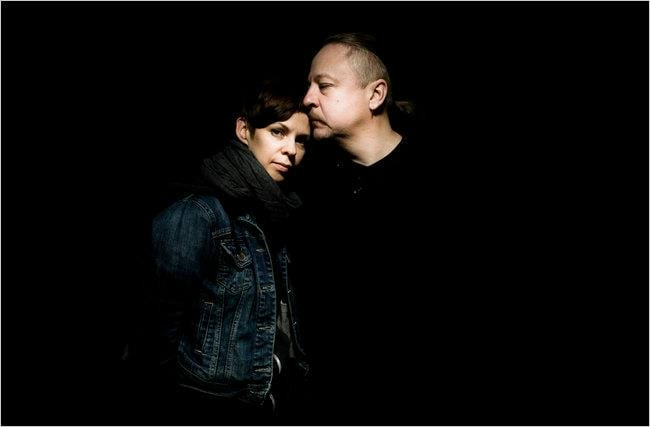
Lukashenko has provided grounds for attacks, weapons, troops, and a tight alliance as the world turned its back on Moscow. In these autocratic systems, even the smallest acts of disobedience are perceived as a threat to the entire structure, and art itself can become a potent weapon against repression.
“We just wanted to do theater. We didn’t care what the authorities thought about it,” Nicolai Khalezin, one of the founders of Belarus Free Theatre, told The Counteroffensive.
Yet, he always knew the danger of his work: “If you fight the dictatorship, you will get all the possible problems that exist.”
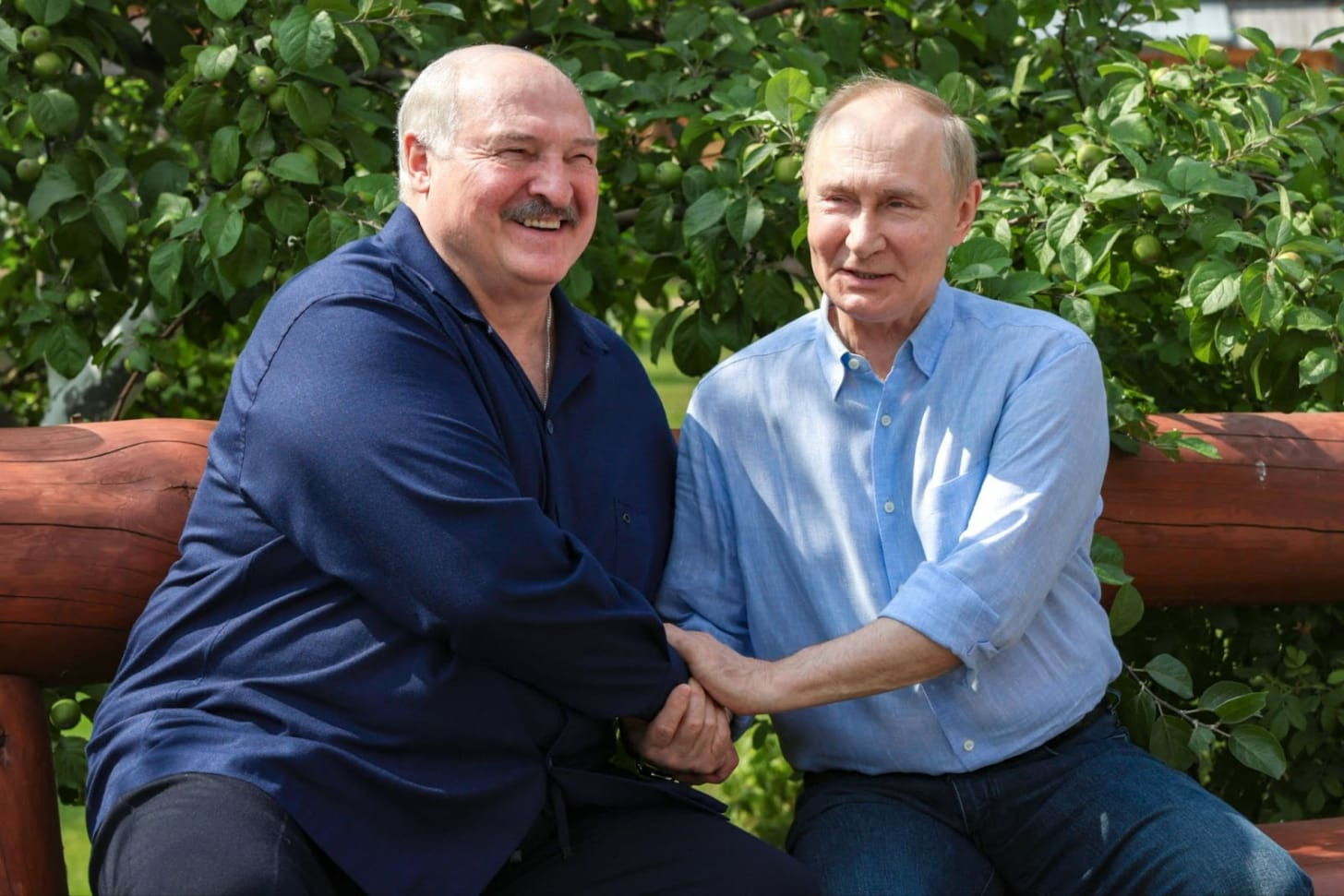
Alongside Nicolai’s artistic pursuits, he wrote for three independent newspapers, which the government shut down as the regime censored media. In direct response to that censorship, Nicolai and his wife, Natalia Kaliada, founded Belarus Free Theatre in 2005.
When authorities barred them from rehearsing or performing publicly, they received offers from thirty underground venues. They ultimately chose the Graffiti Cafe in Minsk for a first play premiere.
The theatre’s clandestine performances came to an end temporarily in 2007 when security forces raided a show, arresting both the troupe and their audience.
In 2010, mass protests erupted in Minsk after Lukashenko claimed victory with 80 percent of the vote. More than 600 people were charged with so-called ‘public disorder,’ and five presidential candidates were imprisoned. The West denounced the election as fraudulent, with the EU renewing travel bans to Lukashenko and his associates.
Nicolai and Natalia escaped Belarus on New Year’s Eve in 2010, days after the protests erupted. They smuggled through the Belarus-Russian border at night; he lay on the floor of a minivan covered with blankets, and his daughter hid on top of him. They chose a border point which they knew had less security.
“It was like in Hollywood movies,” Nicolai said.
They traveled to New York and eventually to London, which would become their home after the United Kingdom offered them political asylum.
Nicolai and Natalia relaunched their theatre company from exile. Rehearsals were coordinated through Skype, and Natalia and Nicolai joined the performances, which were taking place secretly in Minsk, greeting the audience via video chat.
Meanwhile, the thin-skinned autocrats were watching.
According to Nicolai, the Russian government has pledged to arrest and extradite them to Belarus should they ever set foot on Russian soil.
“They constantly tried to discredit us, tried to intimidate us, tried to press on our parents, on our relatives,” Nicolai said.
In 2020, a state-owned newspaper in Belarus, Sovietska Belarus, published an article threatening to kill the couple.
“We will definitely find you…. and we will hang you, side-by-side,” the article said. Nicolai added that authorities have also interrogated his family members in Minsk, including his elderly parents. In addition, the Ministry of Internal Affairs has sealed off their apartment.
In 2020, mass protests erupted in Belarus ahead of the presidential election, where Lukashenko was seeking a sixth term. Tensions escalated after the official results declared him the winner of 80 percent of the votes. The opposition and international observers declared the elections fraudulent.
Police used rubber bullets against demonstrators. Members of the Belarus Free Theatre joined the protests and were themselves detained for as long as two weeks. Russian troops were reportedly mobilized to undisclosed locations in the country.
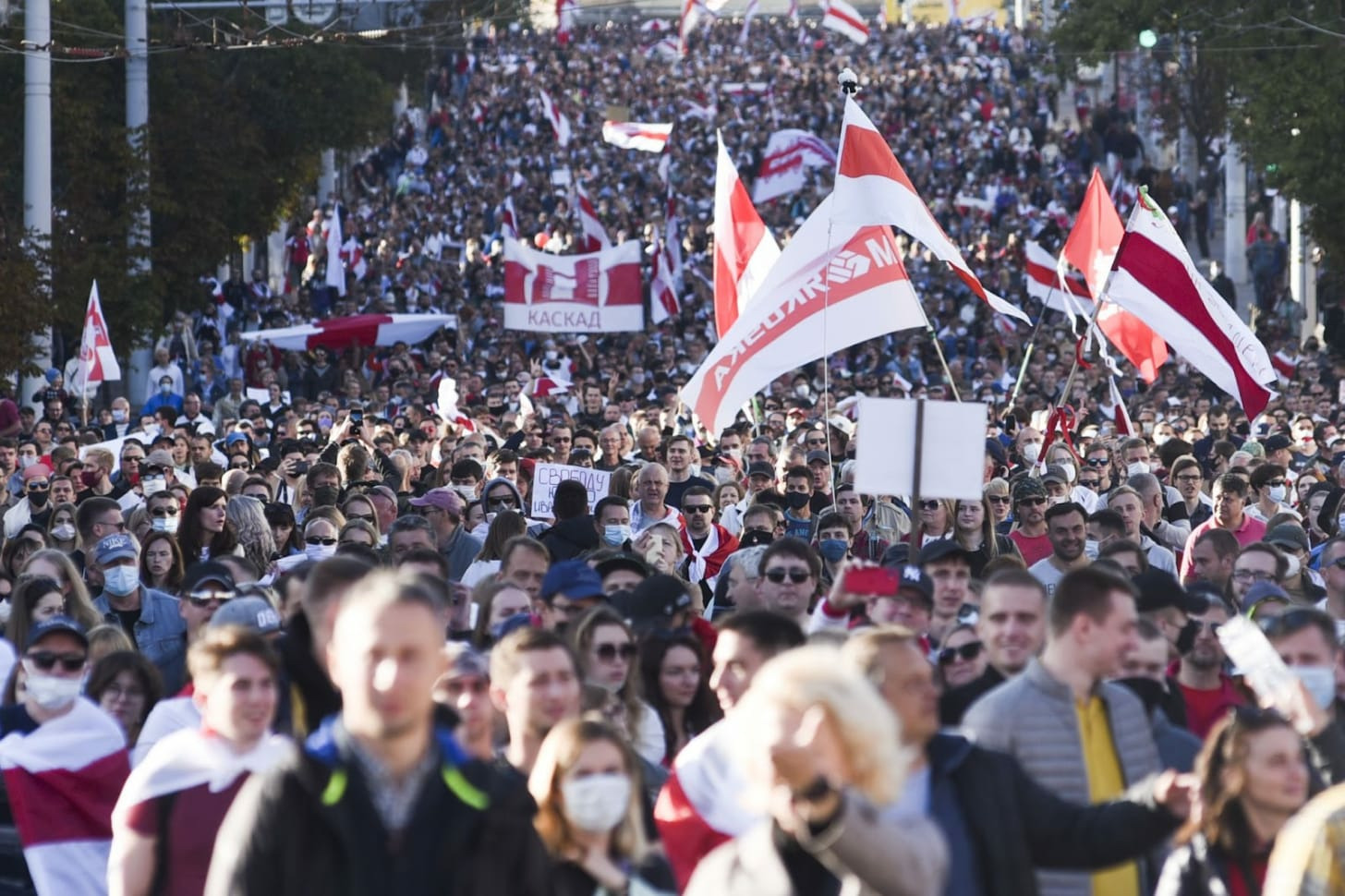
Around this time, Nicolai and Natalia began developing Dogs of Europe, a play set in a dystopian 2049.
The continent was split in two by a wall: on one side, the ‘Russian Reich,’ ruled by a dictator who had repressed all opposition; on the other, a Europe that had failed to recognize the looming threat. In the story, the Reich ultimately expands its empire, conquering Belarus, Ukraine, the Baltic States, and beyond.
Production was halted with the outbreak of COVID-19, resuming only in February 2022—five days after Russia’s full-scale invasion of Ukraine.
By then, their imagined dystopia no longer felt so distant.
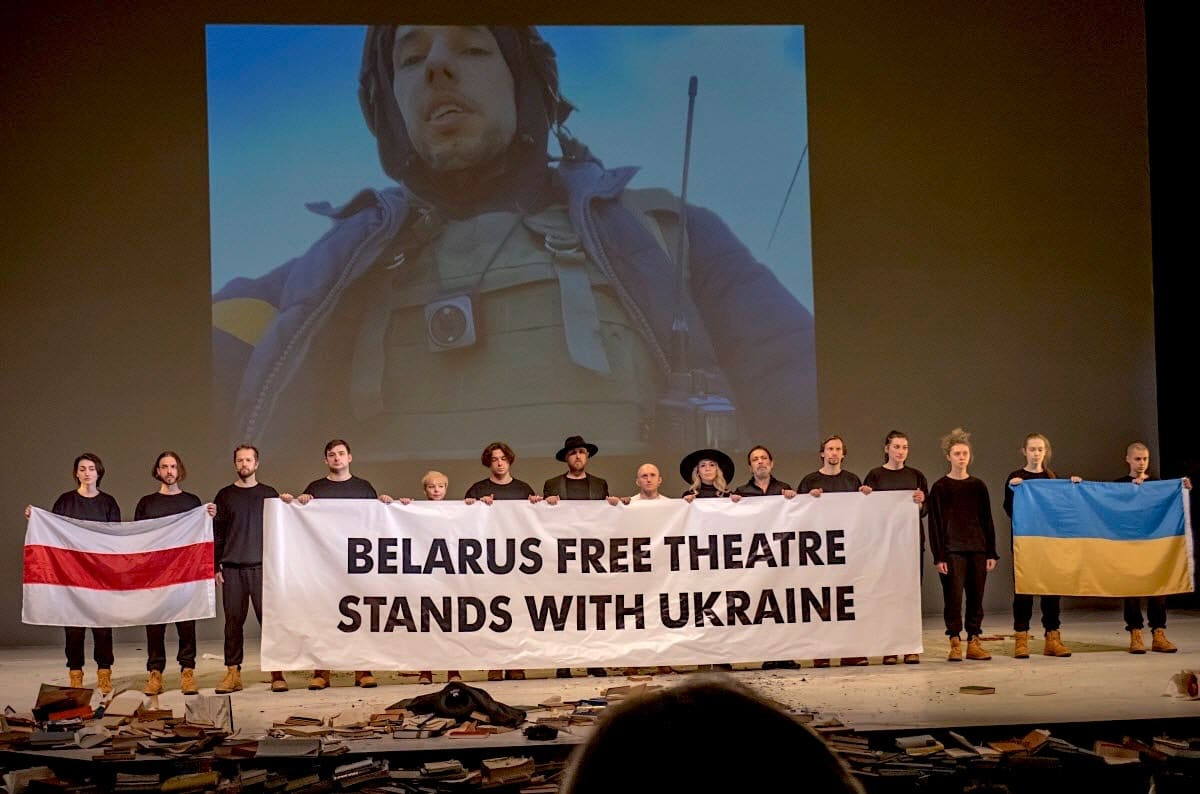
Right before Russia’s full-scale invasion of Ukraine, Nicolai and Natalia decided to evacuate the remaining 16 members of their troupe from Belarus.
The group first crossed into Ukraine; from there, some continued to Poland while others traveled to England. Nicolai recalled receiving help from many along the way, including Ukraine’s border committee, which played a key role in enabling the company’s safe exile.
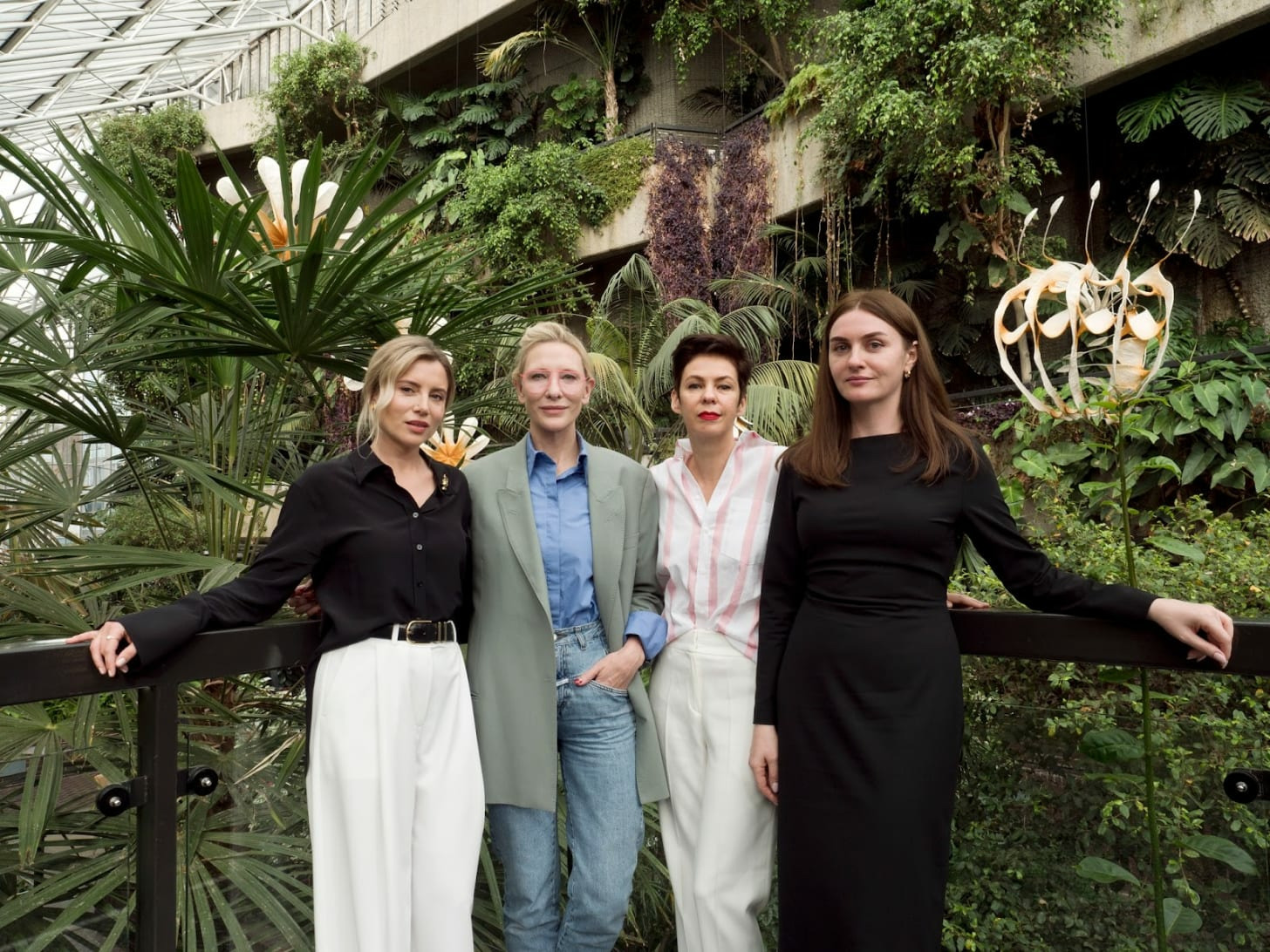
This year, Nicolai released Putin 2.0 — a play that unravels the Kremlin’s world of corruption, deception, and manipulation. The play combines absurdity with political satire of the Kremlin’s top figures, including Putin, Press Secretary Dmitry Peskov and others.
“It’s kind of a statement that I never imagined I would do, because I did not think I would go down to talk about a dictator,” Nicolai said.
The following is an excerpt from Putin 2.0, which presents a conversation between Vladimir Putin and Alina Kabaeva, the Russian gymnast who has long been rumored to be his partner.
Kabaeva. Do you remember what day it is?
Putin. Of course, it’s the anniversary of the great military victory of 1944 when we completed the Crimean campaign, kicking the Germans out for good. Not long ago I signed a directive regarding that anniversary. It means a lot to me that you thought to bring it up.
Kabaeva. And what else?
Putin. Not sure. I didn’t sign any other protocols about today.
Kabaeva. Somebody has a birthday today…
Putin. Can’t be me, mine’s in February… More exactly, in October, right – 7th of October!
Kabaeva. Today’s the day I was born, Vladik, my handsome little prince!
Don’t count Nicolai as a starry-eyed optimist, though.
He believes that Putin and Lukashenko will remain in power until their deaths.
“For me, Lukashenko died about 10 years ago, and Putin about 5 years ago. I don't have them in my mind anymore,” Nicolai said. “They are just a sign of power who are doomed to remain in their place for the rest of their life.”
He doesn’t see the theater’s work as heroic, but instead wishes to be a window to the world of what it is to be a victim of a dictatorship.
“There is only a desire to explain to everyone what a dictatorship is,” Nicolai said. “Because we know from our own experience that it’s bad.”
Editor’s Note: We believe that stories can stand up to dictatorship — whether it's an artistic reimagining of resistance on a theater stage, or writing deeply-empathetic profiles of people targeted by criminal regimes.
Agree with us? Hit the tip jar to support us.
NEWS OF THE DAY:
By: Aidan Stretch
Good morning to readers; Kyiv remains in Ukrainian hands.
POLAND ENDORSES “NO-FLY ZONE” OVER UKRAINE: Polish Foreign Minister Radoslaw Sikorski called for a NATO no-fly zone over Ukraine to protect Europe from Russian strikes. Sikorski’s comments follow an incursion of 19 Russian drones into Polish airspace last week which triggered NATO article 4 consultations.
NATO allies have previously rejected requests by Ukraine for a no-fly zone, citing the high risk of direct confrontation with Russian aircraft. Poland’s openness to the idea is welcome news to Kyiv which continues to seek a no-fly zone during ongoing discussions over Western security guarantees.
However, as Sikorski noted, this “is not a decision that Poland can make alone; it can only be made with its allies.”
RESEARCH REVEALS EXPANDED DETENTION OF UKRAINIAN CHILDREN: A report by the Yale’s Humanitarian Research Lab has discovered 150 new sites across Russia where Ukrainian children have been held since February 2022.
Ukraine says Russia has abducted more than 19,500 children in violation of the Geneva Conventions. But the Humanitarian Research Lab’s findings suggest this figure could be closer to 35,000.
The Kremlin’s abduction of Ukrainian children has spurred international efforts to isolate Russia diplomatically: in 2023, the International Criminal Court issued an arrest warrant for Vladimir Putin and, last week, a bill introduced in the U.S. Senate would label Russia a state sponsor of terrorism.
EU DELAYS NEW RUSSIAN SANCTIONS PACKAGE: The European Union will delay its latest sanctions against Russia, to “better align with G-7 priorities,” Bloomberg reports.
Earlier this week, President Trump ruled out harsher sanctions on Russia unless European allies stop buying Russian oil. The U.S. has also urged EU members to adopt 50-100% tariffs on China and India — the leading buyers of Russian oil — to intensify pressure on Putin.
The EU is expected to finalize a new sanctions package in the next two weeks, which may include steps targeting the Russian energy sector, and measures against Indian and Chinese companies buying Russian oil.
DOG OF WAR:
Today’s Dog of War is this cutie traveling on the train with Zoriana's friend. All of her friends are now taking pictures of dogs because they've discovered this section of The Counteroffensive publication.
Stay safe out there!
Best,
Clara

